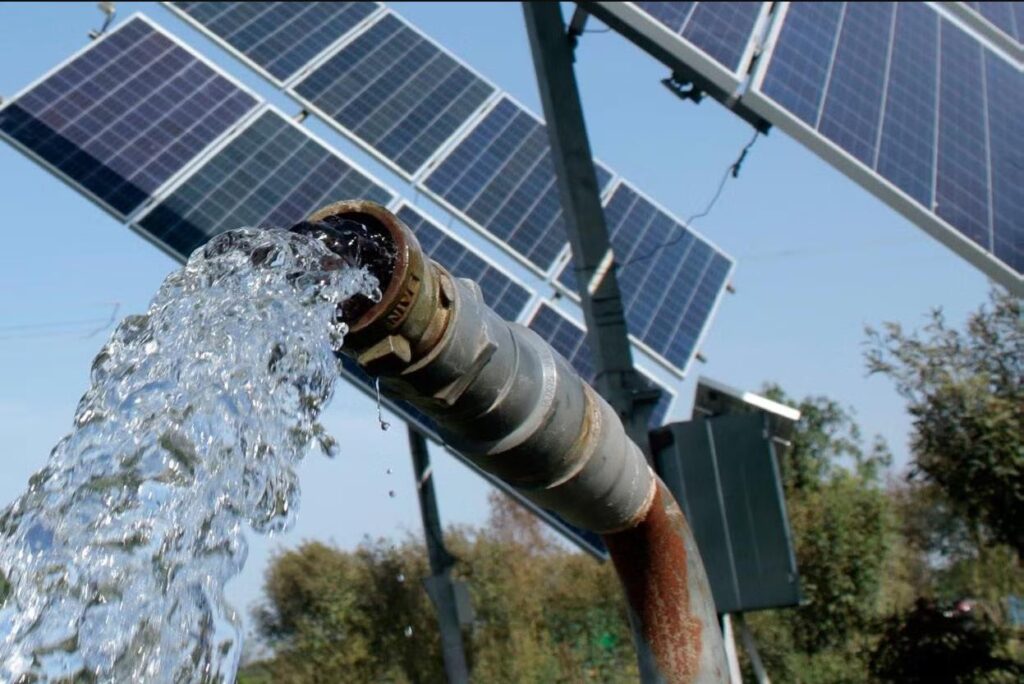Solar water pumps offer several advantages and have become a popular choice for water pumping applications in various settings. However, they also have some disadvantages.
Advantages of Solar Water Pumps
- Renewable Energy Source: Solar water pumps rely on sunlight, which is a clean and renewable energy source. They reduce the dependence on fossil fuels and help mitigate greenhouse gas emissions.
- Energy Cost Savings: Once installed, solar water pumps operate without recurring fuel costs. They can significantly reduce or eliminate electricity bills, making them cost-effective in the long run.
- Environmentally Friendly: Solar water pumps produce no harmful emissions or noise pollution, minimizing their environmental impact and making them suitable for environmentally sensitive areas.
- Remote Water Supply: Solar water pumps are ideal for locations where grid electricity is unavailable or unreliable. They can provide a reliable water supply in remote and off-grid areas.
- Low Operating Costs: Solar water pumps have minimal operating and maintenance costs since they have fewer moving parts compared to traditional fuel-powered pumps.
- Modular and Scalable: Solar water pump systems are modular and can be easily expanded by adding more solar panels or pumps to meet increased water demand.
- Long Lifespan: High-quality solar water pumps and panels can have a long operational life, providing reliable water supply for many years.
Disadvantages of Solar Water Pumps:
- Initial Investment: The upfront cost of installing a solar water pump system can be relatively high compared to traditional pumps. However, the long-term cost savings on energy bills can offset this initial investment.
- Weather Dependency: Solar water pumps rely on sunlight to generate electricity. Cloudy or rainy weather can reduce pump performance, which may require the installation of batteries for energy storage or backup generators.
- Seasonal Variability: The amount of sunlight varies with the seasons, impacting the pump’s output. Some systems may require adjustments or additional storage capacity to ensure consistent water supply during low sunlight periods.
- Space Requirements: Solar panels require adequate space for installation, and the size of the solar array may be a limitation in some locations.
- Maintenance and Repairs: While solar water pumps have fewer moving parts, they still require regular maintenance to ensure optimal performance. Repairs and replacements of components may be challenging in remote areas without skilled technicians.
- Water Storage Considerations: In systems without battery storage, water may need to be stored to ensure continuous supply during periods of low sunlight.
Despite the disadvantages, the advantages of solar water pumps, especially in terms of sustainability and long-term cost savings, make them an attractive option for many water pumping applications, particularly in off-grid and remote areas. Careful planning, proper system sizing, and regular maintenance can help maximize the benefits of solar water pumps while mitigating their limitations.


